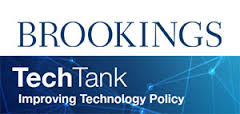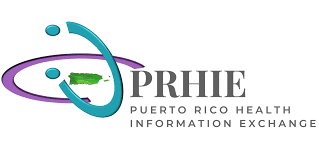21st Century Cures Act
See the following -
A New Pothole on the Health Interoperability Superhighway
On July 24, the new administration kicked off their version of interoperability work with a public meeting of the incumbent trust brokers. They invited the usual suspects Carequality, CARIN Alliance, CommonWell, Digital Bridge, DirectTrust, eHealth Exchange, NATE, and SHIEC with the goal of driving for an understanding of how these groups will work with each other to solve information blocking and longitudinal health records as mandated by the 21st Century Cures Act...
- Login to post comments
A Public Health Perspective on ONC's Strategy to Reduce Burden on Physicians
 On November 28, 2018, the Office of the National Coordinator for Health Information Technology (ONC) released a draft Strategy on Reducing Regulatory and Administrative Burden Relating to the Use of Health IT and EHRs for public comment. The strategy aims to reduce the time and effort and improve the functionality of electronic health records (EHRs) for clinicians, hospitals, and other healthcare organizations. This strategy was developed primarily through the efforts of ONC-convened workgroups in response to requirements laid out by Congress in the 21st Century Cures Act (Section 13103). The report itself does not identify who exactly served on these workgroups and what organizations were represented.
On November 28, 2018, the Office of the National Coordinator for Health Information Technology (ONC) released a draft Strategy on Reducing Regulatory and Administrative Burden Relating to the Use of Health IT and EHRs for public comment. The strategy aims to reduce the time and effort and improve the functionality of electronic health records (EHRs) for clinicians, hospitals, and other healthcare organizations. This strategy was developed primarily through the efforts of ONC-convened workgroups in response to requirements laid out by Congress in the 21st Century Cures Act (Section 13103). The report itself does not identify who exactly served on these workgroups and what organizations were represented.
- Login to post comments
AHRQ Releases Draft Guide for Registry Interoperability: Does Public Health Have a Role?
 On January 11, 2019, the Agency for Healthcare Research and Quality (AHRQ) released a draft Addendum to the Third Edition of Registries for Evaluating Patient Outcomes: A User's Guide called Tool and Technologies for Registry Interoperability. AHRQ has long written about registries - largely from a research standpoint - and I have been following this from afar for some time. This new guide is focused on helping those who both create and use registries understand the issue surrounding leveraging external data to improve registry completeness, accuracy, and usefulness. This report covers lots of ground and does a good job of summarizing important subtopics. Each chapter is overflowing with footnotes and sources.
On January 11, 2019, the Agency for Healthcare Research and Quality (AHRQ) released a draft Addendum to the Third Edition of Registries for Evaluating Patient Outcomes: A User's Guide called Tool and Technologies for Registry Interoperability. AHRQ has long written about registries - largely from a research standpoint - and I have been following this from afar for some time. This new guide is focused on helping those who both create and use registries understand the issue surrounding leveraging external data to improve registry completeness, accuracy, and usefulness. This report covers lots of ground and does a good job of summarizing important subtopics. Each chapter is overflowing with footnotes and sources.
- Login to post comments
An interoperability update: Do we need more carrots and sticks?
 Earlier this year, the ONC released the Trusted Exchange Framework and Common Agreement (TEFCA), which responds to a mandate included in 2016’s 21st Century Cures Act and lays out principles, terms and conditions on which to base an interoperability framework that healthcare organizations can embrace. “This means patients who have received care from multiple doctors and hospitals should have their medical history electronically accessible on demand by any other treating provider in a network that signed the Common Agreement,” said National Coordinator for Health IT Donald Rucker in a recent blog post. To achieve that goal, TEFCA is divided into parts A, the principles, and B, the terms and conditions, which is also where the rubber meets the road for many who live in the healthcare IT world...
Earlier this year, the ONC released the Trusted Exchange Framework and Common Agreement (TEFCA), which responds to a mandate included in 2016’s 21st Century Cures Act and lays out principles, terms and conditions on which to base an interoperability framework that healthcare organizations can embrace. “This means patients who have received care from multiple doctors and hospitals should have their medical history electronically accessible on demand by any other treating provider in a network that signed the Common Agreement,” said National Coordinator for Health IT Donald Rucker in a recent blog post. To achieve that goal, TEFCA is divided into parts A, the principles, and B, the terms and conditions, which is also where the rubber meets the road for many who live in the healthcare IT world...
- Login to post comments
Are jackalopes and information blocking similar?
 Looking to dupe urbanite travelers, bartenders and bar owners in rural Western taverns sometimes fasten antelope horns to the head of a large jackrabbit. They then mount the whole thing, hang it over the bar and tell visitors looking for a craft brewed IPA to watch for vicious jackalopes when they’re out and about. So, are we having a jackalope moment in health IT? Do we believe in something we can’t see? The suggestion has been made that some vendors are actively engaged in “information blocking”—a basic refusal to exchange patient data with other systems. Either that or they’re charging boatloads of money to do so, which is framed as a form of information blocking in a way, but not exactly.
Looking to dupe urbanite travelers, bartenders and bar owners in rural Western taverns sometimes fasten antelope horns to the head of a large jackrabbit. They then mount the whole thing, hang it over the bar and tell visitors looking for a craft brewed IPA to watch for vicious jackalopes when they’re out and about. So, are we having a jackalope moment in health IT? Do we believe in something we can’t see? The suggestion has been made that some vendors are actively engaged in “information blocking”—a basic refusal to exchange patient data with other systems. Either that or they’re charging boatloads of money to do so, which is framed as a form of information blocking in a way, but not exactly.
CMS Promoting Interoperability Program: A Public Health Perspective
 Well, here we go again. The Centers for Medicare and Medicaid Services (CMS) has now released a new Notice of Proposed Rulemaking (NPRM), titled Medicare Program; Revisions to Payment Policies under the Physician Fee Schedule and Other Revisions to Part B for CY 2019; Medicare Shared Savings Program Requirements; Quality Payment Program; and Medicaid Promoting Interoperability Program...As this NPRM was released, the CMS Administrator, Seema Verma, published an open letter to doctors which is focused on reducing the burden on doctors so they can spend more time with physicians. HL7 has begun a similar initiative on reducing clinical burden. So the key question is: Does this NPRM go far enough to reduce provider burden in the spirit of Dr. Verma's letter?
Well, here we go again. The Centers for Medicare and Medicaid Services (CMS) has now released a new Notice of Proposed Rulemaking (NPRM), titled Medicare Program; Revisions to Payment Policies under the Physician Fee Schedule and Other Revisions to Part B for CY 2019; Medicare Shared Savings Program Requirements; Quality Payment Program; and Medicaid Promoting Interoperability Program...As this NPRM was released, the CMS Administrator, Seema Verma, published an open letter to doctors which is focused on reducing the burden on doctors so they can spend more time with physicians. HL7 has begun a similar initiative on reducing clinical burden. So the key question is: Does this NPRM go far enough to reduce provider burden in the spirit of Dr. Verma's letter?
- Login to post comments
COVID-19 Will Be The Ultimate Stress Test For Electronic Health Record Systems
 As the novel coronavirus that causes Covid-19 continues its march around the world and through the United States, it is spawning another kind of infection: Covid-19 cyber threats aimed at individuals and health systems. We aren't crying wolf here. Disaster planning experts know all too well that preexisting weaknesses become worse during crises. The WannaCry cyber attack that devastated the United Kingdom's National Health Service is a good example. Outdated infrastructure containing components with long-understood vulnerabilities are a hacker's paradise...The undeniable fact that electronic health record systems are designed to track and bill procedures rather than provide optimal patient care is likely to be on full display as the health system becomes increasingly saturated with Covid-19 patients.
As the novel coronavirus that causes Covid-19 continues its march around the world and through the United States, it is spawning another kind of infection: Covid-19 cyber threats aimed at individuals and health systems. We aren't crying wolf here. Disaster planning experts know all too well that preexisting weaknesses become worse during crises. The WannaCry cyber attack that devastated the United Kingdom's National Health Service is a good example. Outdated infrastructure containing components with long-understood vulnerabilities are a hacker's paradise...The undeniable fact that electronic health record systems are designed to track and bill procedures rather than provide optimal patient care is likely to be on full display as the health system becomes increasingly saturated with Covid-19 patients.
- Login to post comments
GAO Makes Appointments to Health Information Technology Advisory Committee
 Gene L. Dodaro, Comptroller General of the United States and head of the U.S. Government Accountability Office (GAO), today announced 15 appointments to the new Health Information Technology (HIT) Advisory Committee. It is extremely valuable to have a range of perspectives and expertise in helping the government address challenges related to health information technology, “It is extremely valuable to have a range of perspectives and expertise in helping the government address challenges related to health information technology,” Dodaro said...
Gene L. Dodaro, Comptroller General of the United States and head of the U.S. Government Accountability Office (GAO), today announced 15 appointments to the new Health Information Technology (HIT) Advisory Committee. It is extremely valuable to have a range of perspectives and expertise in helping the government address challenges related to health information technology, “It is extremely valuable to have a range of perspectives and expertise in helping the government address challenges related to health information technology,” Dodaro said...
- Login to post comments
GAO Report on Patient Matching: Nothing New Under the Sun
 On January 15, 2019 the US Government Accountability Office (GAO) released a new report to Congress, Health Information Technology: Approaches and Challenges to Electronically Matching Patients' Records across Providers. This report is in response to the mandate in the 21st Century Cures Act for the GAO to study patient matching. To develop this report, GAO reviewed available literature and interviewed more than thirty-five stakeholders (who are not identified) over the course of a year. I have written several blogs and a feature article on patient matching developments in the US. Similarly, this new GAO report is an excellent retrospective on industry efforts over the past several years.
On January 15, 2019 the US Government Accountability Office (GAO) released a new report to Congress, Health Information Technology: Approaches and Challenges to Electronically Matching Patients' Records across Providers. This report is in response to the mandate in the 21st Century Cures Act for the GAO to study patient matching. To develop this report, GAO reviewed available literature and interviewed more than thirty-five stakeholders (who are not identified) over the course of a year. I have written several blogs and a feature article on patient matching developments in the US. Similarly, this new GAO report is an excellent retrospective on industry efforts over the past several years.
- Login to post comments
Halamka's Report on the May 2015 HIT Standards Committee Meeting
 The May 2015 HIT Standards Committee focused on an in depth review of the ONC Notice of Proposed Rulemaking, with the goal of providing guidance to ONC by June as to which standards should be included in final rule, which should not be included, and which should be identified as directionally appropriate for inclusion in future regulation.The meeting began with the ONC announcement that the HITSC workgroups would be disbanded in June and replaced by focused task forces.
The May 2015 HIT Standards Committee focused on an in depth review of the ONC Notice of Proposed Rulemaking, with the goal of providing guidance to ONC by June as to which standards should be included in final rule, which should not be included, and which should be identified as directionally appropriate for inclusion in future regulation.The meeting began with the ONC announcement that the HITSC workgroups would be disbanded in June and replaced by focused task forces.
- Login to post comments
Halamka: A Time of Great Turmoil in Healthcare IT Policy Making
 We are in a time of great turmoil in healthcare IT policy making. We have the CMS and ONC Notices of Proposed Rulemaking for Meaningful Use Stage 3, both of which need to be radically pared down. We have the Burgess Bill which attempts to fix interoperability with the blunt instrument of legislation. Most importantly we have the 21st Century Cures Act, which few want to publicly criticize. I’m happy to serve as the lightening rod for this discussion, pointing out the assumptions that are unlikely to be helpful and most likely to be hurtful. Read More »
We are in a time of great turmoil in healthcare IT policy making. We have the CMS and ONC Notices of Proposed Rulemaking for Meaningful Use Stage 3, both of which need to be radically pared down. We have the Burgess Bill which attempts to fix interoperability with the blunt instrument of legislation. Most importantly we have the 21st Century Cures Act, which few want to publicly criticize. I’m happy to serve as the lightening rod for this discussion, pointing out the assumptions that are unlikely to be helpful and most likely to be hurtful. Read More »
- Login to post comments
Health Care Data as a Public Utility: How Do We Get There?
 Despite the technological integration seen in banking and other industries, health care data has remained scattered and inaccessible. EHRs remain fragmented among 861 distinct ambulatory vendors and 277 inpatient vendors as of 2013.Similarly, insurance claims are stored in the databases of insurers, and information about public health is often kept in databases belonging to various governmental agencies. These silos wouldn’t necessarily be a problem, except for the lack of interoperability that has long plagued the health care industry. For this reason, many are reconsidering if health care data is a public good, provided to all members of the public without profit...
Despite the technological integration seen in banking and other industries, health care data has remained scattered and inaccessible. EHRs remain fragmented among 861 distinct ambulatory vendors and 277 inpatient vendors as of 2013.Similarly, insurance claims are stored in the databases of insurers, and information about public health is often kept in databases belonging to various governmental agencies. These silos wouldn’t necessarily be a problem, except for the lack of interoperability that has long plagued the health care industry. For this reason, many are reconsidering if health care data is a public good, provided to all members of the public without profit...
- Login to post comments
Health Gorilla and the Puerto Rico Department of Health Reach Milestone in Health Information Exchange Network
 Health Gorilla, the largest interoperability provider in Puerto Rico, in conjunction with the Puerto Rico Department of Health (PRDOH), today announced a milestone achievement following the official launch of the Puerto Rico Health Information Exchange (PRHIE) on July 1st. In the one month since go-live, Health Gorilla has successfully connected 25% of Puerto Rico's population to the PRHIE. This innovative project enables healthcare providers to access and share patient medical record data securely and electronically across more than 400 care sites, 4,200 providers, and more than 700,000 patients.
Health Gorilla, the largest interoperability provider in Puerto Rico, in conjunction with the Puerto Rico Department of Health (PRDOH), today announced a milestone achievement following the official launch of the Puerto Rico Health Information Exchange (PRHIE) on July 1st. In the one month since go-live, Health Gorilla has successfully connected 25% of Puerto Rico's population to the PRHIE. This innovative project enables healthcare providers to access and share patient medical record data securely and electronically across more than 400 care sites, 4,200 providers, and more than 700,000 patients.
- Login to post comments
Health IT Security, FHIR Focus of ONC Secure API Server Challenge
ONC is challenging healthcare stakeholders to build secure Fast Healthcare Interoperability Resources (FHIR) servers to improve health IT security and ensure that secure FHIR options are available in the future. The Secure API Server Showdown Challenge will ideally “identify unknown security vulnerabilities in the way open source FHIR servers are implemented,” ONC Office of Standards and Technology Director Steven Posnack, MS, MHS, wrote in a blog post...
- Login to post comments
HHS Called on to Eliminate Health Information Blocking
A coalition of healthcare stakeholders convened by Health IT Now called HHS and its departments to eliminate information blocking so that providers can effectively aggregate patient EHRs and advance interoperability. The letter from organizations including the American Academy of Family Physicians (AAFP), AMIA, DirectTrust, and athenahealth requested HHS issue a proposed rule that takes existing laws, standardization, patient health data access, and other complicating factors into consideration...
- Login to post comments